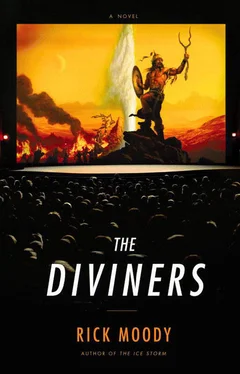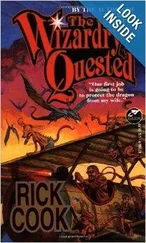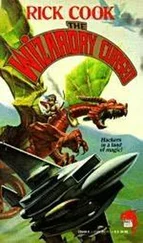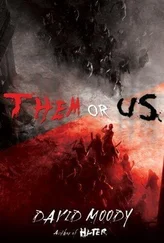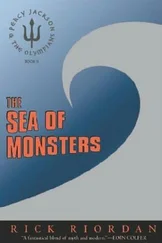The fact that he once had to sit behind Elke at a certain performance of a certain Broadway spectacular did not enter into the review, of course, and how dare the suggestion be made. Randall Tork is the greatest writer in wine history, and his contempt for the edifice of wine consumption is owing to the fact that he cares about the truth. Indeed, at forty-nine years of age, and completely repulsive in the matter of his physical demeanor, being rather short, rather fat, and rather covered with acne scars, and having large muttonchop sideburns, and eyes too close together, and given to wearing a beret because of hair that is thinning on the top, there is nothing else for him to care about but wines.
His parents, who separated in his earliest childhood, found him unlovable and his feminine primping and mincing worthy of contempt, and they abused him mercilessly, and may they rot in hell. He had no friends as a child, and in the instances where people were moved to pity by his circumstances, he spit on these people, reviled them, and felt good about it after the fact.
Today’s august task is to work the term “festering boil” into a review of a Moselle, and to compare the owners of a restaurant in Marin County that once failed to honor his reservation to Vichy collaborators, after which he will return again to one of his favorite leitmotifs, the “gentle crushing of the fruit.” The foot crushing the grape in the bathtub is where wine began, in an intimacy, in a humanness. What enology has lost, and there is always something lost, is this very humanness, the slave in the bathtub crushing the grape at the behest of his cruel master. There should be slaves, of course, and there should be masters, and there should be a calm, serene attitude about the fermentation process: Keep the room cool, require absolute cleanliness, make certain that the man who is monitoring temperatures is a man who knows to check every hour. Don’t forget about elevage, the interval between fermentation and bottling; it is an art that has been handed down through the oral tradition. Randall can talk about these things. He can talk about triage and malic acidity and cap management, and the role in this era of the great French families, the way père et fils have conspired generation after generation to do this one perfect thing, and how this has not happened in the appalling United States of Baptist wine swillers because what have we here? In this country? We have the kind of tradition in which a fawning twenty-three-year-old wine writer comes to call at your vineyard, though he is unable to recognize appropriate tannins and wouldn’t care if the wineglass was filled with antifreeze.
Thus, Randall begins to compose:
Is that what you want for your vineyard? Do you want to have an expensive meal with a twenty-three-year-old with genital herpes, so that when you attempt to bed him in order to ensure the fine review of your pestilential product he infects you with his suppurating sores? Is that what you want? Maybe if you calved off his finger warts and mixed them in it would improve your beverage.
The language is closing in on what he needs. Truth is a condition of language, and when the outrage is pure, then the review is accurate.
What about the piece he fashioned entirely of similes? Reviewing the wines of Paraguay? Magnificent, really.
What are these wines like? They are like the teenage sacrifices of the Aztec peoples at the moment that these sacrifices wet themselves; like the smoked banana peels of banana republics; like the scorched smell of freebasing at the coca-producing factories of the Colombian cartels; like the acidified pages of the tomes of the Magic Realists; like the revolutionistas, unwashed and unfed; like the Disappeared after a good six months in their unmarked graves; like the punctured rectums of the fervent Catholic altar boys on their way to another round in the confessional with the good Father; like the smoking sky over the scorched rain forest; like the rainwater running down the gutter of an Indian village with no plumbing; like the throbbing bosoms of the sun-ripened, thong-wearing transvestites of the humid slums; like the discarded thatch of a continent’s worth of Brazilian bikini waxes; like the cannibalism of the interior tribes; like the moldy grooves of another box full of warped tropicalia LPs; like the nectar of slug-infested mangos; like the ear-splitting cry of the toucan and like its gaudy, excessively colorful exterior and its thinly constructed beak; like the bomb shelters of the hidden Latin American Nazis; like the still throbbing organs of their victims; and like the soiled loincloths of the victims of cannibalism at the moment of their demise.
Yes, he is the greatest, and no one can take the mantle from him, and yet there is the one thing missing, namely a personal life of any kind. There were some married men, in his later teens, the sort of men who liked much younger boys, no matter the appearance of these boys. He has been with some of these men, and he loved these men, and he learned a lot from them, including something about wine. But many years have since elapsed with nothing to show for them but the occasional tawdry sally with a vigneron or a sommelier. These never did satisfy, especially when he tried to get them to tie him up properly.
In the wake of this realization, there was no choice, really, but to take the search for love out into the world. And that was how he, Randall Tork, the greatest wine writer in history, came to conduct wine tastings at the hospices and in the chronic-care wards of the Bay Area. To be Randall Tork, stripped of his reputation and his franchise, in a hospital ward, with a couple of bottles of swill and a box of digestives, filling plastic cups for men and women who had cast off all but the last few pounds of their body weight, this was actually a rather moving experience for him. He got the okay from les médicines: a glass or two would not unduly affect the tripartite cocktail of chemicals routinely prescribed for his étudiants. He began spinning out his tales of wine excellence, how the grace to make a good wine did not take just root stock and ample sunshine, it took five hundred years of perfection and the beneficence of the gods, and he spoke of the kinds of political stability (monarchy being especially good) that made this perfection possible and of the secret languages that needed to be handed down, and in telling these stories, he found that he suddenly had a greater purpose. He found that he could feel great affection for the HIV afflicted, even when they made uninformed evaluations of the wines. He looked forward to getting out of the house.
It was in this context that Randall met a certain handsome gentleman. Raoul was not exactly who Randall Tork was imagining when he went to speak in the wards of the damned. Many of the men in the hospices at least dimly recognized the importance of wine, perhaps as part of their dining lives. Some of them even had strong opinions on the subject. They would occasionally take issue with him, and there was vigorous back-and-forth. Raoul was not one of these men, and Randall was of the opinion that Raoul had never even tasted wine before he had his first plastic cupful on the ward. He knew so little of wine that he had no idea that the stuff in the chalice at church on Sundays was reputed to be the same beverage that Randall Tork was now handing out. Raoul, it seemed, was mostly interested in professional baseball, the argot of which he pronounced in a charming Hispanic way.
Whippet thin, with short curly black hair, Raoul also sported one brown eye and one that was sort of greenish, a combination so lovely that Randall Tork felt a need to compose lines on the subject. It turned out, of course, that the vehicle for these lines was a review of a New Zealand white that everyone said was so vivacious, full-bodied, like an Oakland hooker, with the fruit of her cheap douche and the overtones of a Sumatran boar barbecued on a spit. Yet still this wine reminds me of the multicolored eyes of a beautiful man who once offered to take me to see the legends of local baseball frolic on their fields. Always Barry Bonds this, Barry Bonds that, Barry Bonds is a Greek god, he will live into eternity. This was Raoul’s sweet song, along with the fact that his surname, he said, proved that he was related to someone called A-Rod. Raoul was full of strong opinions about baseball, as befitted a young man, and seemed to come to the wine tastings with the cross-purpose of perseverating on America’s pastime.
Читать дальше
